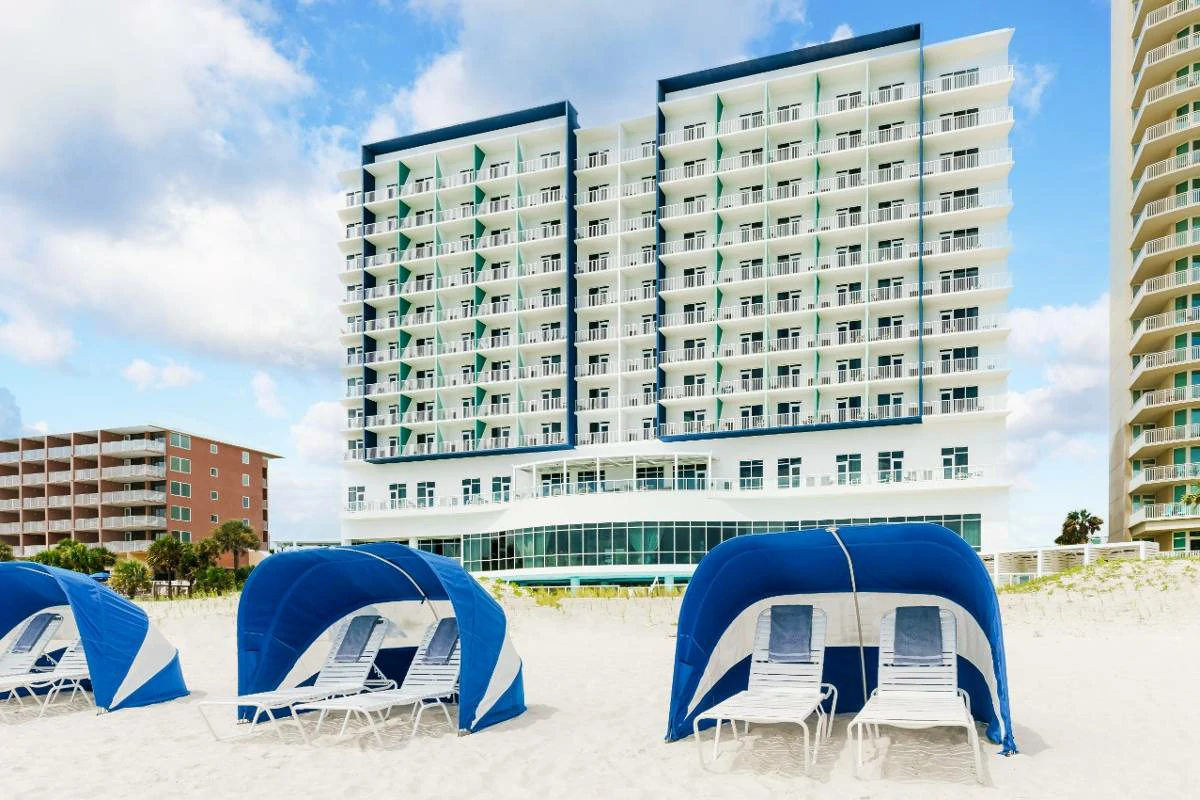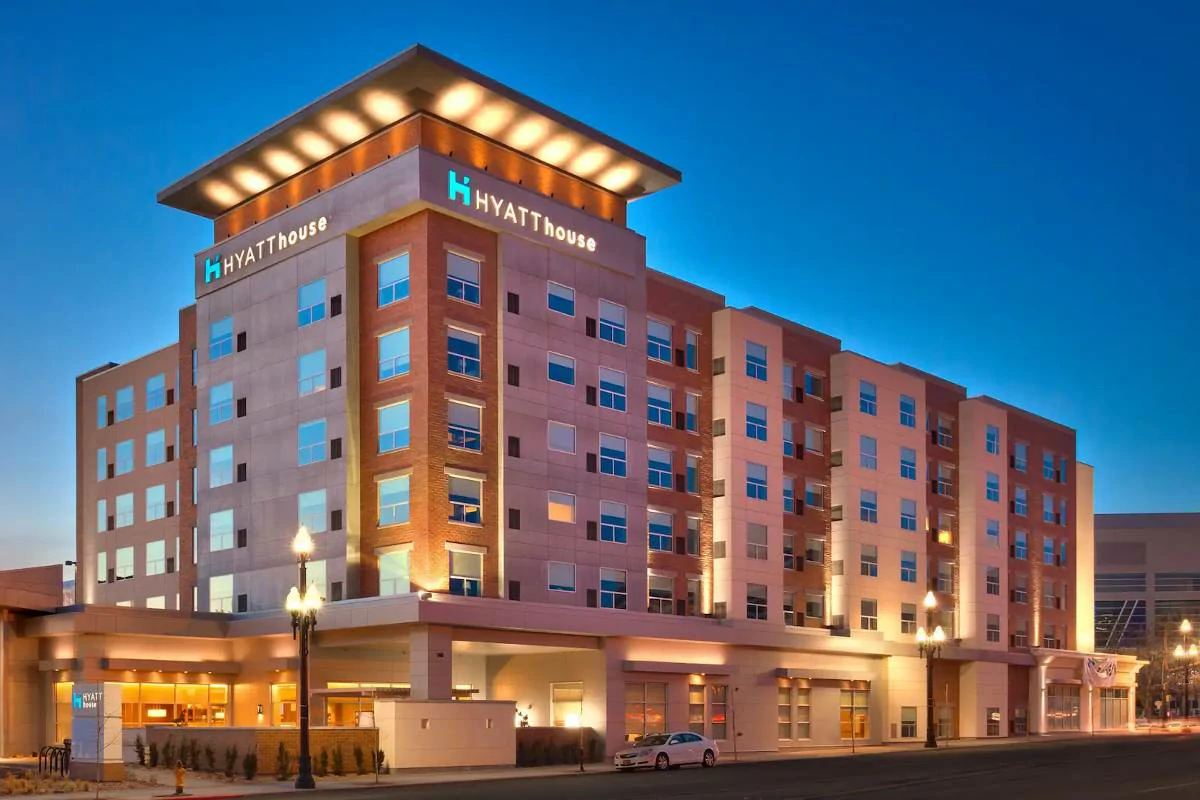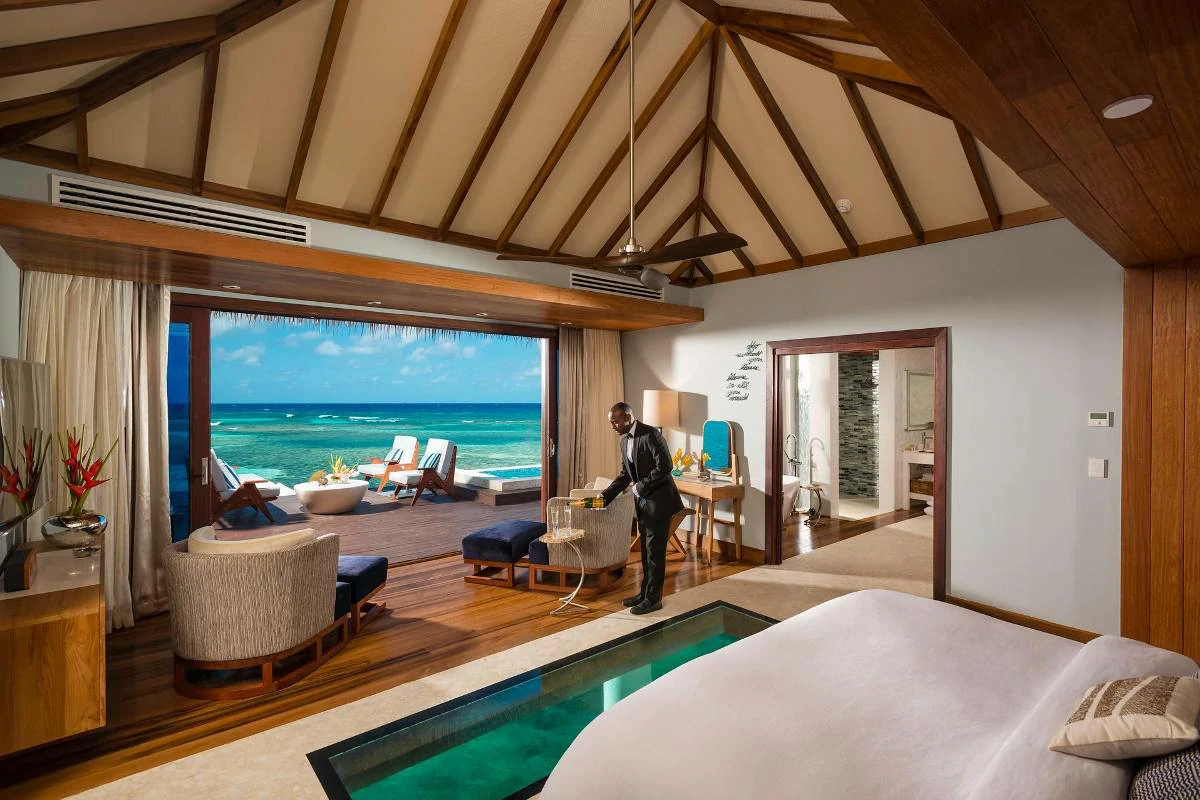How many hotels are there in the world? Answer is – It’s difficult to pinpoint the exact number of hotels worldwide, but reliable estimates put the figure above 700,000. This massive number includes a wide variety of establishments, ranging from small bed and breakfasts to sprawling luxury resorts. The hotel industry is constantly evolving, with new hotels opening and others closing, making a precise count even more challenging.
Summary
- There are well over 700,000 hotels and resorts operating around the globe.
- This number encompasses a broad spectrum of accommodations, including budget-friendly hostels, independent hotels, and massive chain properties.
- The hotel industry is highly dynamic, and the total number of hotels fluctuates frequently.
- Factors such as economic conditions, tourism trends, and global events impact the number of hotels operating worldwide.
How Many Hotels Are There in the World?

The Significance of Hotels as Part of the Global Travel Ecosystem
Hotels are far more than just places to sleep while away from home. They form an integral part of the global travel ecosystem, shaping experiences, and fueling economies worldwide. These establishments provide the essential infrastructure that makes both leisure and business travel possible.
From the grand, historic hotels that evoke an era of bygone elegance to sleek, modern accommodations catering to the tech-savvy traveler, hotels serve as temporary homes for millions of individuals each year.
Their impact ripples through countless sectors; they generate employment opportunities, fuel local economies, and contribute significantly to a nation’s tourism revenue.
Why It’s Challenging to Determine an Exact Number
Pinpointing an exact, universally agreed-upon number of hotels in the world is a surprisingly complex endeavor. Here’s why:
No Single Global Database: No centralized, all-encompassing database tracks every hotel on the planet. Data is often collected by regional or national tourism and hospitality organizations, leading to variations in reporting and definitions.
The Definition of “Hotel” Varies: What qualifies as a “hotel” is not standardized globally. In some regions, small guesthouses or bed and breakfasts might be included, while others might only focus on larger, commercially registered properties.
Constant Flux: The hotel industry is incredibly dynamic. New hotels open regularly, while others close or undergo rebranding. Keeping up with these constant changes makes a precise count difficult.
Unregistered Establishments: Particularly in developing countries, small informal accommodations may operate without official registration. These establishments often fly under the radar of organizations tracking hotel statistics.
Dr. Anya Nerin Expert Opinion
Dr. Anya Nerin, Professor of Hospitality Management “The lack of a precise hotel count highlights the vast and somewhat fragmented nature of the global hospitality industry. While estimates are valuable, it’s crucial to remember that the landscape is always shifting.”
How Many Hotels Are There in the World?

While an exact number is elusive, leading industry sources converge on estimates that underscore the vastness of the global hotel landscape:
STR: A respected provider of hotel market data, STR estimates suggest there are more than 187,000 hotels and roughly 17.5 million guest rooms worldwide.
World Tourism Organization (UNWTO): This United Nations agency focused on tourism indicates that there could be over 700,000 hotels and resorts operating around the globe.
Hospitality Industry Reports: Various hospitality-focused publications and research firms often release their own estimates, generally aligning within the range of 700,000 and upwards.
Factors That Affect the Global Hotel Count
The number of hotels worldwide is not static. It’s influenced by a multitude of interconnected factors, including:
Economic Conditions: A healthy economy often fuels growth in the hotel sector. Rising business travel and increased disposable income for leisure travel spur demand for new accommodations. Conversely, economic downturns can lead to hotel closures and slow the construction of new properties.
Tourism Trends: Destinations experiencing a surge in popularity witness a corresponding increase in hotel development. Shifts in traveler preferences, such as a growing interest in ecotourism or wellness retreats, can influence the kinds of hotels that are being built.
Global Events: Major global events like the Olympics or World Expositions create a temporary, highly localized spike in demand for hotel rooms, sometimes leading to a wave of new construction in the host city.
Government Policies: Regulations related to zoning, construction permits, and tourism development incentives or disincentives can directly impact the ease of building and operating new hotels.
Technology Disruption: The rise of online booking platforms and the sharing economy (e.g., Airbnb) has introduced new forms of competition, forcing the traditional hotel industry to adapt and in some cases, fueling the closure of less competitive properties.
Mr. Rajiv Mehra Expert Opinion
Mr. Rajiv Mehra, Vice President at the Indian Association of Tour Operators (IATO) “The hotel industry is a barometer of both economic health and prevailing travel trends. Where you see new hotels popping up, it’s usually a sign of opportunity and traveler interest in that particular destination.”
Types of Hotels: A Diverse Landscape

The hotel industry offers a dazzling array of accommodation options to suit every traveler’s needs, budget, and style. Let’s take a closer look at some of the most common hotel categories:
1. Luxury Hotels and Resorts
These properties epitomize opulence and personalized service. Think spacious, lavishly appointed rooms, world-class dining, expansive spas, dedicated concierge services, and an array of premium amenities.
Luxury hotels often occupy iconic buildings or boast stunning locations, catering to the most discerning travelers. Examples include:
2. Boutique Hotels
Boutique hotels put a strong emphasis on design, unique character, and intimate ambiance. They often boast a highly curated aesthetic, sometimes themed around art, history, or a specific local flavor.
Boutique hotels generally have fewer rooms than larger chain hotels, allowing for more focused, personalized attention from staff.
3. Budget-Friendly Hotels and Hostels
This category prioritizes affordability. Budget hotels offer clean, no-frills accommodations, while hostels are a popular choice for solo travelers and backpackers seeking shared dormitory-style rooms and communal spaces. Well-known budget chains and hostel brands include:
4. Extended Stay Hotels
Designed for guests needing accommodations for longer periods (weeks or even months), extended stay hotels feature apartment-style layouts with kitchenettes or full kitchens, on-site laundry facilities, and often light housekeeping services.
This category is ideal for business relocations, project-based work, or those in between homes.
5. Bed and Breakfasts (B&Bs)
B&Bs offer a homey, personalized alternative to traditional hotels. They are often located in charming houses or historic buildings, with a small number of individually decorated rooms.
A homemade breakfast is typically included in the stay, fostering a convivial atmosphere where guests can interact with their hosts.
6. Airport Hotels
Located on or in close proximity to airport terminals, these hotels prioritize convenience for travelers with early flights, late arrivals, or flight layovers.
Airport hotels often provide shuttle services and may offer day room rates for short-term rest between flights.
Sarah Wilson Expert Opinion
Sarah Wilson, Travel Blogger at The JetSetter Diaries “The beauty of the hotel landscape today is that there’s truly something for everyone. Whether you crave the pinnacle of luxury or the camaraderie of a well-run hostel, research is key to finding your perfect fit.”
Geographic Distribution of Hotels

The concentration of hotels across the globe isn’t uniform; certain regions boast a far greater density of properties compared to others. Let’s explore where the hotels are clustered and why:
1. Which Regions Have the Highest Hotel Concentrations?
North America: The United States alone is a major player in the global hotel industry, particularly in well-established tourism hubs like Florida, California, and New York. Las Vegas, with over 150,000 hotel rooms, is often crowned the city with the most hotels on Earth.
Europe: Historic cities like Paris, London, and Rome are renowned for their wealth of hotels, encompassing everything from grand centuries-old properties to hip design hotels. Europe’s diverse terrain, rich cultural heritage, and well-connected transportation systems make it a perennial tourism powerhouse.
Asia-Pacific: This rapidly developing region is experiencing significant growth in its hotel sector. China, in particular, boasts a burgeoning hospitality industry, with Beijing claiming the title of the city with the most hotels worldwide (over 4,000). Destinations like Thailand, Indonesia, and Vietnam are also witnessing a surge in hotel development.
Factors Driving Regional Concentrations
Tourism Hotspots: Locations boasting famous attractions, natural wonders, or a reputation for unique experiences naturally attract greater hotel development.
Business Hubs: Major commercial centers and cities hosting trade shows and conferences require a large concentration of hotels to cater to business travelers.
Transportation Infrastructure: Areas with well-developed airports, train networks, and cruise ports tend to see a higher density of hotels for ease of traveler access.
Government Policies: Favorable tourism development policies and investment incentives can spur hotel growth in specific regions.
2. Emerging Hotel Markets
The hotel landscape is ever-evolving, with new markets emerging alongside traditional tourism strongholds. Here are a few regions to watch:
Middle East: Nations like the United Arab Emirates (Dubai), Qatar, and Saudi Arabia are investing heavily in luxury hotels and resorts, positioning themselves as high-end destinations.
Africa: While still facing infrastructural challenges, certain African countries are experiencing an uptick in hotel development, with a focus on ecotourism and safaris. South Africa, Mauritius, and Morocco are seeing hotel growth.
Latin America: The rich biodiversity and cultural attractions of Latin America are luring both leisure and adventure travelers. Countries like Mexico, Costa Rica, and Brazil are seeing an expansion in their hospitality sectors.
Dr. Natalia Ortiz Expert Opinion
Dr. Natalia Ortiz, Professor of Tourism Studies “The rise of new hotel markets reflects shifting global travel patterns. Today’s travelers are becoming more adventurous, seeking out destinations beyond the traditional European or North American circuits.”
Trends Shaping the Hotel Industry

The hotel industry isn’t simply reacting to change – it’s actively driving and embracing it. Here’s a look at the key forces reshaping the landscape:
1. Technology and Innovation
Technology is seeping into every aspect of the hotel experience, from booking to check-out and everything in between:
Mobile Apps: Hotel apps streamline the booking process, allow for contactless check-in, and sometimes even act as digital room keys, bypassing the front desk altogether.
Smart Rooms: Voice-controlled lighting, temperature control, and smart speakers are becoming more common in hotel rooms, offering guests enhanced convenience and personalization.
Robots and AI: While still in their relative infancy, robots are being employed by some hotels for tasks like luggage delivery and concierge services. Artificial intelligence (AI) powers chatbots for instant customer service and data analysis to improve hotel operations.
Virtual and Augmented Reality (VR/AR): Some hotels are experimenting with VR for virtual “try before you travel” room tours, and AR to enhance wayfinding or offer interactive local guides.
2. Sustainability Initiatives
With travelers becoming increasingly eco-conscious, hotels are stepping up their sustainability efforts. This encompasses a wide range of measures:
Energy Efficiency: Implementing smart lighting systems, water-saving fixtures, and renewable energy sources to reduce a hotel’s carbon footprint.
Waste Reduction: Eliminating single-use plastics, offering robust recycling programs, and composting food waste.
Supporting Local Communities: Sourcing food and amenities from local suppliers, partnering with conservation projects, and promoting ethical tourism practices.
Green Certifications: An increasing number of hotels are seeking certifications like LEED (Leadership in Energy and Environmental Design) to demonstrate their commitment to sustainability.
3. Changing Traveler Preferences
Hotels are keenly attuned to evolving guest expectations and desires. Key trends include:
Experiential Travel: Travelers increasingly crave unique, immersive experiences. Hotels are responding with curated local excursions, behind-the-scenes tours, and opportunities to connect with a destination’s culture and people.
Wellness Focus: Spas were just the beginning. Hotels are integrating wellness into their core offerings with healthy dining options, fitness programs, meditation spaces, and even sleep-optimized rooms.
Bleisure Travel: The lines between business and leisure travel continue to blur. Hotels are catering to this hybrid traveler with work-friendly common spaces, reliable Wi-Fi, and ‘playful’ perks within a professional setting.
Multigenerational Travel: Hotels are adapting amenities and room layouts to better accommodate families and groups traveling across different ages and needs.
Emily Thompson Expert Opinion
Emily Thompson, Founder of Sustainable Travel International “Sustainability is no longer a niche concern for hotels; it’s becoming a key driver of consumer choice. Travelers are actively seeking out properties that demonstrate genuine environmental and social responsibility.”
What Does This Mean for Travelers?

The evolution of the hotel landscape offers both unprecedented choices and a few valuable reminders when it’s time to book your next stay.
More Choices Than Ever Before
Diversity of Accommodation: The sheer range of hotels available allows you to find a property that perfectly suits your travel style and budget. Whether you prioritize minimalist chic, family-friendly fun, or barefoot luxury, there’s something out there for you.
Technology-Enhanced Experiences: From booking to checkout, technology streamlines many aspects of the hotel experience. Mobile apps and contactless options can save you time and offer a greater sense of control.
Hotels as Destinations: Many hotels are becoming destinations in and of themselves. Think rooftop bars with stunning views, vibrant co-working spaces, top-notch dining experiences, or wellness programs that rival dedicated retreats.
Focus on Sustainability: The increasing number of eco-conscious hotels empowers you to travel responsibly, making a positive impact on the destinations you visit.
The Importance of Finding the Right Hotel
With so much choice, it’s essential to take the time to research and select a hotel that truly aligns with your needs and priorities. Here’s how:
Define Your Priorities: Are you seeking location, luxury, value for money, specific amenities, or a strong sustainability ethos? Understanding what matters most will guide your search.
Don’t Rely Solely on Price: While budget is important, fixating on the cheapest option might lead you to sacrifice elements that are key to your enjoyment. Consider the value proposition of a slightly more expensive hotel that ticks all your boxes.
Read Reviews: Online reviews from other travelers offer a wealth of candid insights. Pay attention to recurring themes in both positive and negative reviews to get a sense of the hotel’s strengths and potential drawbacks.
Look beyond Star Ratings: Traditional star ratings can be helpful but don’t tell the whole story. A boutique hotel with a unique personality might not have a five-star rating but could be a perfect fit for your travel style.
Don’t be Afraid to Contact Hotels Directly: If you have specific questions about accessibility, dietary needs, or unique requests, pick up the phone or email the hotel directly. Their responsiveness is often a good indicator of overall guest service.
Mark Baxter Expert Opinion
Mark Baxter, Senior Editor at Travel Weekly “Today’s hotels are designed to cater to a wider range of travelers than ever before. Doing a bit of research upfront ensures you find a place that not only provides a bed but enhances your entire trip experience.”
Conclusion
The hotel industry is an integral part of the global travel experience. From bustling city centers to remote corners of the Earth, these establishments provide us with refuge, comfort, and often an essential launchpad for adventure. The sheer number of hotels worldwide speaks to the enduring human desire to explore, connect, and experience new places.
This industry doesn’t stand still. We’re witnessing innovations in technology, a rising commitment to sustainable practices, and the relentless adaptation to ever-evolving traveler needs. These trends are not only shaping the hotels themselves but also enhancing the countless journeys that begin within their walls.
Whether you’re a seasoned globetrotter or embarking on your first major trip, understanding the landscape of the hotel industry empowers you to make informed choices. Prioritize the factors that matter most to you, embrace the spirit of discovery when seeking out accommodations, and remember that the right hotel can transform a good trip into a truly unforgettable one.
FAQs
How do I find the best hotel deals?
- Be Flexible: If possible, having flexibility with your travel dates can unlock lower rates.
- Comparison Websites: Use aggregator websites like Kayak or Booking.com to compare prices across multiple booking platforms.
- Book Directly: Contact the hotel directly to see if they can match or beat online rates.
- Loyalty Programs: Enroll in hotel loyalty programs to earn points and access exclusive perks.
- Last-Minute Deals: If you’re spontaneous, consider apps like HotelTonight, specializing in last-minute unsold inventory.
What can I do if I have an issue with a hotel?
- Document: Take photos or videos to document any problems.
- Speak Up: Alert the hotel staff immediately and give them a chance to rectify the situation.
- Escalate: If unresolved, ask to speak to a manager or document the names of the staff you interacted with.
- Post-Stay Follow Up: Contact customer service via the hotel’s website or write an online review detailing your experience.
Is it safe to book hotels online?
- Reputable Sites: Stick to well-known booking platforms or the hotel’s official website.
- Look for Security Indicators: Ensure the website’s URL begins with “https” and has a padlock symbol, indicating a secure connection.
- Credit Card Protection: Use a credit card for bookings as they generally offer greater fraud protection than debit cards.







